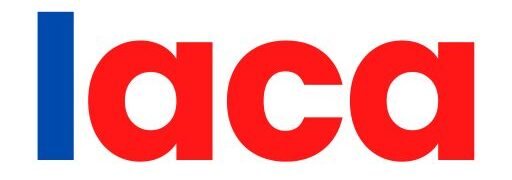The South African government has officially announced an increase in the national minimum wage (NMW) for 2025 in a dramatic intervention aimed at benefiting low-income workers. The Department of Employment and Labour has therefore made this announcement in regard to March 1, 2025, when the hourly minimum wage will rise to R28.79 from R27.58. The 4.4% increase is aimed at enabling workers to cope with growing living costs facing economic nuisance.
New National Minimum Wage Rate for 2025
The new minimum wage now stands at R28.79 per hour, continuing with the annual increases in wage rates aimed at sustaining the purchasing power of workers. The increase during 2025 is marginally higher than the wage hike of 4.1% effect from 2024 and is in general alignment with prevailing inflation trends, which in December 2024 stood at 5.3% on a year-on-year basis.
The national minimum wage is a safeguard against unfairly low wages across all sectors of the economy. It is the intent of the government to use this adjustment to go some distance toward the restoration of social equity while still keeping in view the many economic sustainability dimensions posed by the extreme inequality and unemployment characteristic of the South African economy.
Wage Adjustments by Sector
This new minimum wage is applicable to most workers in South Africa; however, there are some exclusions and availability of sectoral considerations:
In the case of the Expanded Public Works Programme (EPWP), temporary jobs in public infrastructure projects are paid for on a separate wage structure. With the EPWP, the hourly wage is increased from R15.16 to R15.83. The low level of this wage takes into account the temporary and subsidized nature of EPWP employment.
Contract cleaning has geographical wage rates. Employees in metropolitan areas such as Johannesburg, Cape Town, Tshwane, and Nelson Mandela Bay will earn a minimum hourly rate of R31.69. In the case of KwaZulu-Natal, wages will be defined by the region’s collective bargaining agreements. For all other areas of the country, the minimum wage for contract cleaners will be set at R28.89 per hour.
Who Qualifies for the 2025 Minimum Wage?
The national minimum wage applies to all employees, including domestic and farm workers in both formal and informal sectors. However, this law has a couple of significant exceptions:
- Persons who participate in the Expanded Public Works Programme are subject to a special lower minimum wage.
- The wage increase does not apply to volunteers or employees of state entities such as the South African National Defence Force, the National Intelligence Agency, or the South African Secret Service.
- The NMW does not include other benefits of employment, for instance, transport allowances, housing, meals, bonuses, tips, or commission. The minimum wage itself does not include those, which are in addition to the hourly wage as applicable.
Compliance and enforcement
The department is promising increased inspections within workplaces across all sectors to enforce the implementation of the new wage rate. Employers are being urged to review existing compensation structures, make appropriate changes, and effect the change by March 1.
The penalties for violating the new wage rates and the ensuing enforcement action are a challenge to comply with. The government emphasizes the collective bargaining process and open communication to assist in an easier transition.
Wider Economic Effects
The wage increase in 2025 has excited mixed responses from different stakeholders. Trade unions welcome the increase as a step toward dignity and economic justice for workers. They argue that a living wage is vital to increasing worker productivity and generating demand within the economy.
Conversely, business associations argue that the imposition of wage increases may hurt small-medium enterprises, especially within industries that are labour-intensive, such as agriculture, hospitality, and retail. Critics warn that this will exacerbate fear of wage costs and, therefore, job losses or slowing down of hires in already vulnerable sectors.
Economists still seem to be divided over the wage increases’ long-term consequences. While some argue that higher wages provide a boost to consumer spending and thus economic growth, some argue that it becomes rather difficult for the businesses operating in a low-profit-margin environment to absorb the extra costs.
Conclusion
The reason for the increase in the minimum wage in South Africa in 2025 is that it is a very carefully calibrated instrument taking into account the alleviation of economic inequity while ensuring the sustaining of employment environment. Although some employers might find the increase challenging, it is still a very vital step toward creating a fair and inclusive economy.
With the March 1 effective date quickly approaching, both employers and employees should be prepared to implement changes. The main issue becomes understanding how the new wage structure will affect your sector or business in terms of compliance and competitiveness in an ever-changing South African labour landscape.




